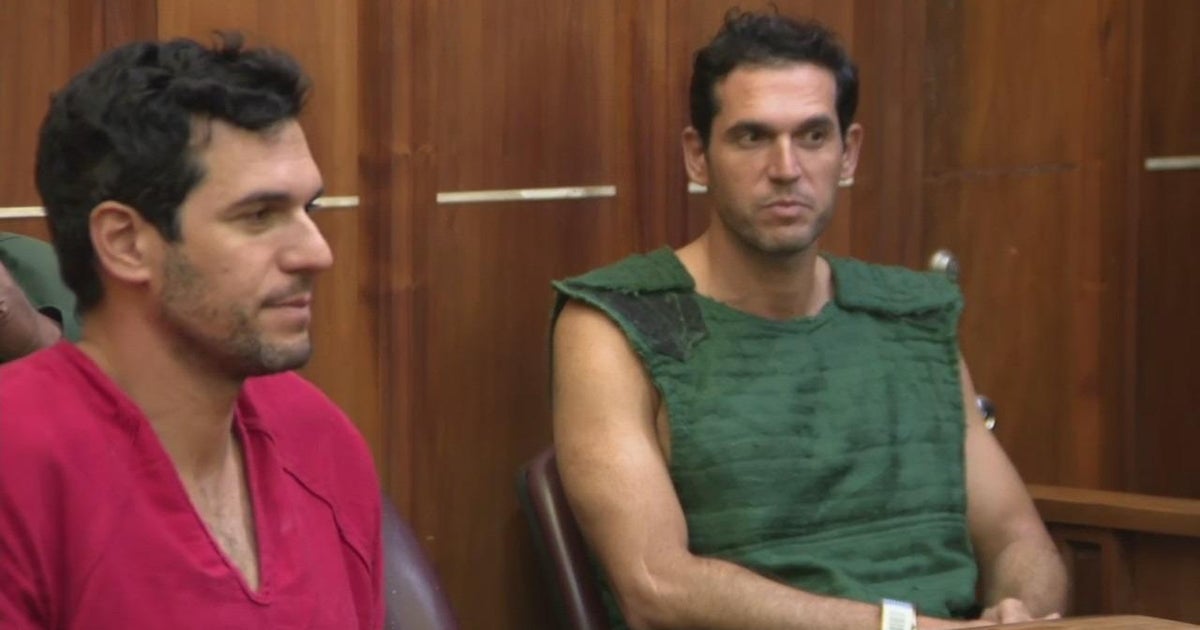Group Uses Films To Attract People To Miami Area
MIAMI (CBSMiami/AP) — A group in South Florida is now using film to market areas around Miami.
The Reel Miami Project is planned as a series of six short films, each featuring different out-of-town characters arriving in neighborhoods around Miami. Films for Miami Beach and Wynwood were released this week, with films featuring South Beach, Downtown Miami, Coral Gables and the Everglades set to follow. Bacardi, the liquor company whose U.S. headquarters is located in Miami, is providing some of the financial backing. Each film will feature the company's signature rum, along with local business partners like hotels, restaurants and bars.
The project is using social media to attract viewers to its website, Facebook page and YouTube channel. On the project's website, viewers can find links to help them book vacations similar to the ones featured in the films or even create their own custom trips.
"There's so much more to Miami than just Ocean Drive," creator and producer Frank Kelly said. "And I thought that with this format, we can truly expose this city for what it really stands for."
While the ultimate goal is to attract visitors, Kelly said his focus is on story-telling over story-selling. He said the directors of the first two films wrote the brands into the films in a way that feels natural.
"First, we entertain viewers," Kelly said. "We want people to come in and watch the films, simply for the pleasure of viewing a good movie. And then the idea is that a wife in Berlin or Birmingham reaches out to her husband and says let's go down to Miami and explore Wynwood."
The Miami Beach film follows a couple on a weekend getaway. Their adventure begins when they pick up the wrong luggage at the airport, sparking a series of high-society stops meant for a mysterious stranger.
The Wynwood film follows a different couple as they visit Miami for a wedding. After learning the nuptials might be cancelled, they decide to explore Wynwood, an emerging arts district. The audience soon learns the couple is at a crossroads in their own relationship.
Fro Rojas, who directed the Wynwood film, said the key to working the locations and brands into the story is subtlety. As someone with experience directing commercials, Rojas said he consciously avoided shooting the film like an advertisement.
"There are some brands, like Bacardi, where you see half the bottle, and you know it's Bacardi," Rojas said.
Besides, he added, having every bottle turned perfectly toward the camera would take audiences out of the story.
While blending products and locations into the narratives will be important to the project's ultimate success, Carlos Gutierrez, director of the Miami Beach film, said the first priority is to showcase the Miami area and individual neighborhoods.
"We always talked about Miami being the third principal character in each film. It shouldn't be just background noise," Gutierrez said. "What happens to these characters is sort of a mirror image of what's happening in these neighborhoods. I don't think what happens to the characters could happen to them in their hometowns."
Elizabeth Beirnes, marketing manager at Casa Moderna, said her hotel's appearance in the Wynwood film went far beyond a simple commercial or promotional video.
"This actually portrayed what our neighborhood is like and the type of people that come to this area," Beirnes said. "So it really showcased not just our hotel — which is what we were going after — but all the offerings in this new part of Miami."
Thomas Meding, the area vice president of The sbe Hotel Group, said he's happy that the SLS Hotel was included in the project's first film, but he foresees the value of his early involvement increasing as more films are added.
"The goal really is to showcase Miami in the films overall," Meding said. "And then of course while we would like to keep SLS on the top of their minds, it really encourages viewers to create their own Miami or Miami Beach experience."
Deborah Breiter, a professor at the University of Central Florida's hospitality management school, said there's good data to suggest that featuring a location in a movie or TV show can help drive tourism.
"This is a really soft sell," Breiter said. "People buy with their eyes. Destinations are no different."
Breiter said the social media aspect of the Reel Miami Project should give it an advantage over a film that might be seen on television or in a theater. The videos can be re-watched and shared, allowing viewers, as well as their friends and family members, to daydream about their vacations and imagine themselves in these places. And oddly enough, knowing the videos are marketing tools upfront will likely make people more receptive to them.
"I think a lot of people have become very cynical about product placement in movies." Breiter said. "But when you go to the web and you're searching and you start to see these beautiful videos of this destination, you're more engaged because you're searching. You're not going to think so much about the product placement."
Breiter also pointed out that breaking down the project into six parts to focus on different areas follows a larger trend in the travel industry.
"A lot of destinations are trying to expand their images," Breiter said. "Orlando doesn't just want to be the theme park capital of the world. Miami doesn't want to be known just for South Beach. We're always trying to find different types of tourists who might not have thought of our destination beforehand. Film, media, videos, they're a great way to help enforce an image, polish an image or even introduce a new image."
And while the Reel Miami Project is just now being introduced to the public, its creator already has his sights set outside of South Florida.
"The business model is to take this model to other cities," Kelly said. "I'd love to do the Reel Phoenix Project, the Reel Savannah project, the Reel Dallas Project."
(TM and © Copyright 2014 CBS Radio Inc. and its relevant subsidiaries. CBS RADIO and EYE Logo TM and Copyright 2013 CBS Broadcasting Inc. Used under license. All Rights Reserved. This material may not be published, broadcast, rewritten, or redistributed. The Associated Press contributed to this report.)



